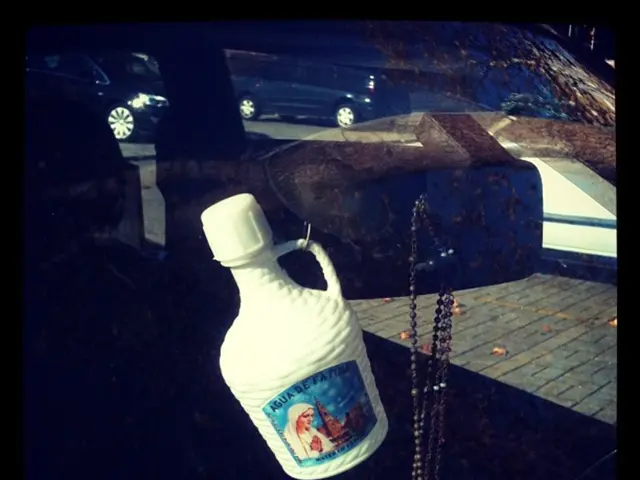Reducing administrative burdens for a livelier urban existence - Reduced bureaucratic hurdles for enhanced urban living in city centers.
City Centers in Rhineland-Palatinate Embrace Permanent Ease on Outdoor Dining
Recent changes in the city of Mainz have loosened regulations for outdoor dining, providing a more inviting atmosphere for city center visitors. This trend is not isolated to Mainz, as neighboring cities like Kaiserslautern and Trier are also implementing similar changes.
Manuela Matz, Economic and Public Order Commissioner for Mainz's CDU, underscored the importance of vibrant dining options in city centers: "Our gastronomic businesses and their outdoor areas are crucial for the attractiveness and liveliness of our city center." These changes are seen as steps towards reducing bureaucracy, thereby strengthening Mainz's appeal as a location.
In the wake of the COVID-19 pandemic, a building permit for outdoor dining areas larger than 50 square meters in Mainz will no longer be required, unless podiums or canopies are set up. Previously, the threshold was 20 square meters. For areas exceeding 50 square meters, building permits are now valid for three years, with renewal being a straightforward process.
The association Dehoga in Rhineland-Palatinate has highlighted the industry's demand for outdoor spaces. In the view of Dehoga president Gereon Haumann, people, especially since the pandemic, prefer open and spacious areas to crowded indoor venues.
Kaiserslautern has already adjusted regulations independent of the COVID-19 pandemic, enabling outdoor dining to extend until 11 pm on weekdays and midnight on weekends and holidays. No further issues have been reported, such as noise complaints or littering. Trier has also extended operating hours for outdoor dining, keeping establishments open until 11 pm on weekdays and 1 am on weekends, with specific measures in place to minimize noise levels during the final hour. These changes are initially being tested for a year.
With the exception of exceptional circumstances during the pandemic, Trier has revised its special use regulations for 2024. Shops are now allowed to place seating in front of their doors, while conditions apply for standing tables and winter heating on terraces.
Unlike other cities, no building permit is required for outdoor seating in Ludwigshafen's gastronomy industry; only special use fees are charged. During the 2024 UEFA European Football Championship, the city administration temporarily shortened closing times, allowing outdoor seating until 11 pm under certain conditions.
Koblenz, however, has no plans to modify regulations for outdoor gastronomy, requiring a special use permit to place chairs and tables on public property. Monthly fees per square meter vary, being more costly in the city center than in the outskirts.
While specifics on the current regulations for outdoor dining in these cities may vary, it is clear that city governments are adapting their ordinances to accommodate increased demand for outdoor social spaces, especially in downtown areas. For accurate, up-to-date regulations, including permits, hours, capacity limits, and pandemic-related restrictions or relaxations, one should consult the official city government websites of Mainz, Trier, Kaiserslautern, and Ludwigshafen or their local public health offices.
- The economic and public order commissioner for Mainz's CDU, Manuela Matz, emphasized that vibrant dining options, including those with expanded outdoor areas, play a significant role in the attractiveness and liveliness of city centers, aligning with policy-and-legislation regarding business development.
- In light of the COVID-19 pandemic, changes in lifestyle and general-news trends have shown an increased preference for open and spacious food-and-drink areas, as illustrated by the demand for outdoor spaces from the Dehoga association in Rhineland-Palatinate.
- Some Rhineland-Palatinate cities, like Kaiserslautern and Trier, have recently modified their employment policies to accommodate extended hours for outdoor dining, signifying a commitment to adapt to the evolving lifestyle choices of their communities and visitors, as seen through policy-and-legislation adjustments.








